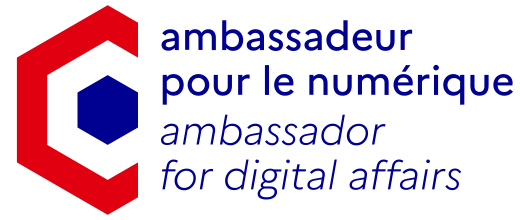Research actors
Table of contents
In the EU
EU DisinfoLab
What?
The EU DisinfoLab is a non-governmental organisation (NGO) based in Brussels, which “provides innovation and scientific support to civil society actors fighting disinformation”. It studies and exposes online communities by mapping social media clusters and monitor and source disinformation. Its methodology is based on Social Network Analysis (SNA).
The Lab also publishes studies and organizes conferences to initiate and facilitate collaboration, collaboration and sharing of tools and practices between actors (experts, organisations, etc.) countering disinformation internationally.
It also intents to develop a legal framework “preserving our freedoms while offering a sustainable solution to the disinformation threat”.
What for?
The broad goal of the NGO is to “fight disinformation with innovative methodology and scientific support to the counter-disinformation community” and comprehends raising awareness within the civil society.
For whom?
The NGO’s work is transparent and open to all. It especially targets actors and organizations actively fighting disinformation.
Additional information
Among partner projects of the EU DisinfoLab are WeVerify and Open Your Eyes.
RevealEU
By whom?
REVEAL was one of the first projects of the European Commission dealing with verification of digital content. It started in 2013 and formally ended on 31 December 2016.
What?
The REVEAL project aimed at developing tools (technologies) and services (methodologies) helpful for social media analysis, especially content verification. Its missions were to help analyze and organize information, protray it intuitively and provide context all the while protecting personal data. Its consortium produced open publications available on the REVEAL website.
What for?
Through REVEAL, EU actors seeked to determine the level of trustworthiness of an information, “predict contributor impact and how much or to what extent all this affects [hidden modalities such as] reputation or influence”, with the overall goal of a “better understanding and utilization of the social media world”.
For whom?
This project could provide journalists with content, content analysis, tools and services described above. But it also could help companies improving their processes and products through the providing of “organised, summarised and evaluated” data.
Additional information
REVEAL was funded by the European Union’s Seventh Framework Programme for research, technological development and demonstration.
WeVerify
By whom?
We Verify is an EU co-funded horizon 2020 research and innovation project started in December 2018 and planned to end at the end of November 2021.
What?
WeVerify focuses on social network analysis and algorithm-supported verification of digital content. It will provide analysis of social media and web content to detect disinformation and ultimately expose misleading and fabricated content “through micro-targeted debunking and a blockchain-based public database of known fakes”. To do so, it will use machine learning, participatory verification and open source algorithms, among other tools and methods.
WeVerify will also provide an open source platform for “collaborative, decentralised content verification, tracking, and debunking” as well as a “digital companion to assist with verification tasks”, datasets and documentation.
What for?
The main goal of the project is “to address the advanced content verification challenges”.
For whom?
Although data and perhaps tools should be open and accessible to all, this project is mainly aimed at journalists.
In the USA
Stanford’s Global Digital Policy Incubator
The Global Digital Policy Incubator is a program of the Center on Democracy, Development and the Rule of Law (CDDRL), a research center at the Freeman Spogli Institute for International Studies, which is a research institute for the study of international affairs at Stanford University.
The GDPI was created “to inspire policy and governance innovations that reinforce democratic values, universal human rights, and the rule of law in the digital realm”. It is meant to be “a collaboration hub for the development of norms, guidelines, and laws that enhance freedom, security, and trust in the global digital ecosystem”.
It thus promotes collaboration among various actors, from civil society actors to governments and diplomats to private sector companies, international organizations, technologists and academics. It aims at producing solutions and advice specifically for governments and private tech companies in the drafting and making of policies, norms and processes which would be beneficial to society as a whole, including citizens.

